The Learning Hub: from Hope to Home
By Marvin Lozano Senobio
When the pandemic hit, it hit the underprivileged students the hardest, putting their world to a standstill. A year into this unprecedented condition, those who were unfortunate not to have computers and no stable internet connection grappled with the challenges and demands of the distance learning, offering a slim promise of finishing their studies. As if adding insult to injury, they had to study at home where a quiet place could not be an option. That was the image of an almost impossible situation for a number of scholars of Assumption Development Foundation (ADF).
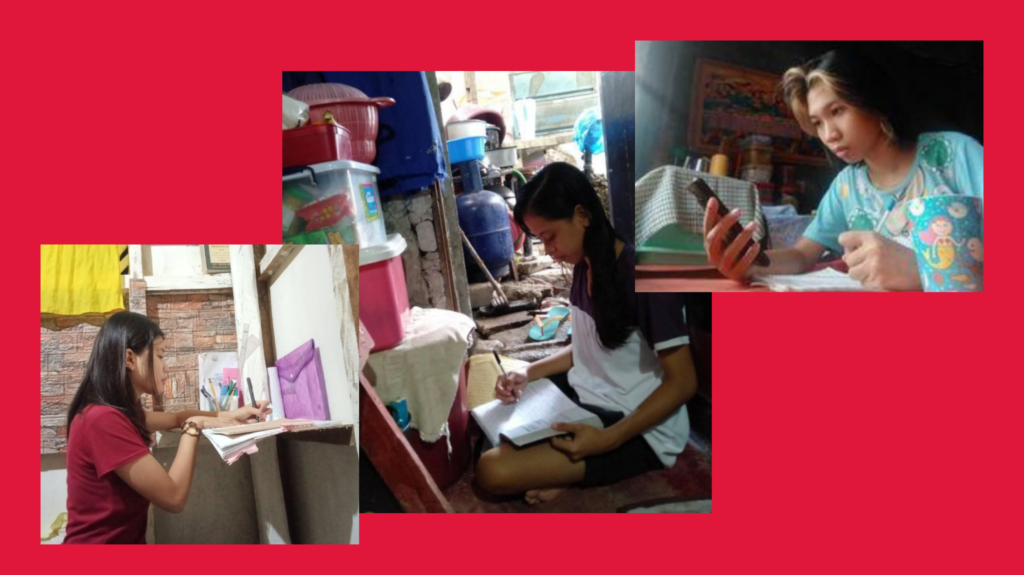
This picture became vibrant with hope when Zone V Camera Club under exhibit committee headed by Bern Wong and now President of the camera club in partnership with PLDT / Smart headed by Mr. Al Panlilio, provided The Learning Hub with 10 desktop computers and reliable internet connection in November 2021 through its “Images of H.O.P.E.” Project. It used to be ADF’s computer room back in the time when 2mbps was Filipinos’ only decent option for internet speed. Now it boasts its 600mbps internet, catering scholars who are attending online classes or doing remote tasks for school. Open for ADF scholars every day, The Learning Hub provides students an environment conducive to learning and responsive to their needs, and even a place they can call a home.
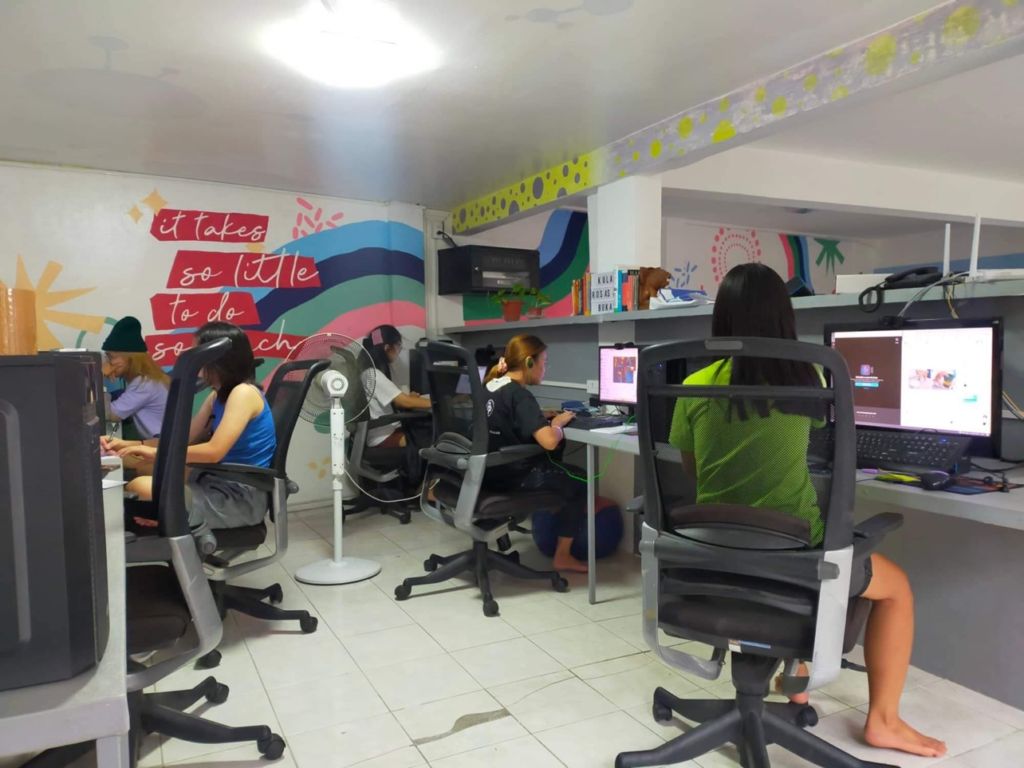
Proof of this are some of the ADF scholars’ experiences in using The Learning Hub.
Miranella, a fourth-year college scholar, stayed in ADF for three months because she needed to concentrate and deeply focus on her lessons, something she couldn’t do at home. Resolved to do anything to study, she set up her own space in The Hub, which, according to her, became her “refuge to survive the online classes.” Mira shared how the fast internet connection and the environment helped her do more than focusing well in class. “I was able to host a webinar efficiently because of my setup, and I finished my thesis paper,” the engineering student said.
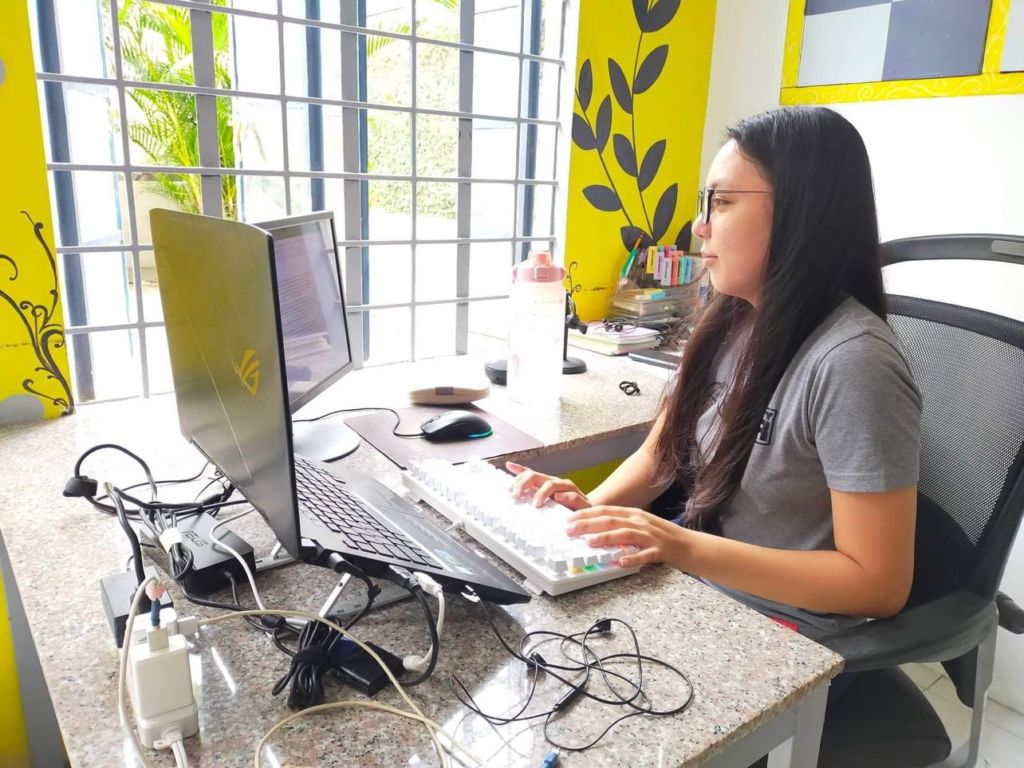
Jasmine, who is a home-studying online student in her second year of Office Administration, shares the same sentiments as Mira’s. According to Jasmine, working on school projects without a quiet space was a problem. She found the constant sounds of chickens and neighbors highly distracting. Now that she uses The Learning Hub, she says it offers the best setting for “educational endeavors,” particularly for those who are easily interrupted and bothered by background noises. “ADF learning hub is a peaceful place for people who are irritated by noises,” she wrote.
Both Mira and Jasmine’s predicament was shared by Queenie, but hers was a notch higher compared to theirs. A graduating student without access to a properly functioning laptop, she struggled with her internship, so she decided to stay in ADF, not for a few weeks or months, but for one whole semester. This Business Administration student studied and worked virtually, doing research and interviews for her tasks. “With the help of The Learning Hub, I was able to complete my digital project,” she said. Awarded as “Best Intern,” Queenie will graduate in September this year.
Not only does The Learning Hub provide the computers and the internet, but it also offers a boost of morale to some scholars. Some said they have regained confidence participating in class, even leading group activities like they used to prior to the pandemic. They admitted that it was difficult to be actively involved in class discussions with unreliable internet. “I actually got the confidence to take the lead because we now have The Learning Hub where I can do all my tasks without interruption,” a scholar wrote in one of the entries to their daily diary—a collection of stories in The Learning Hub.
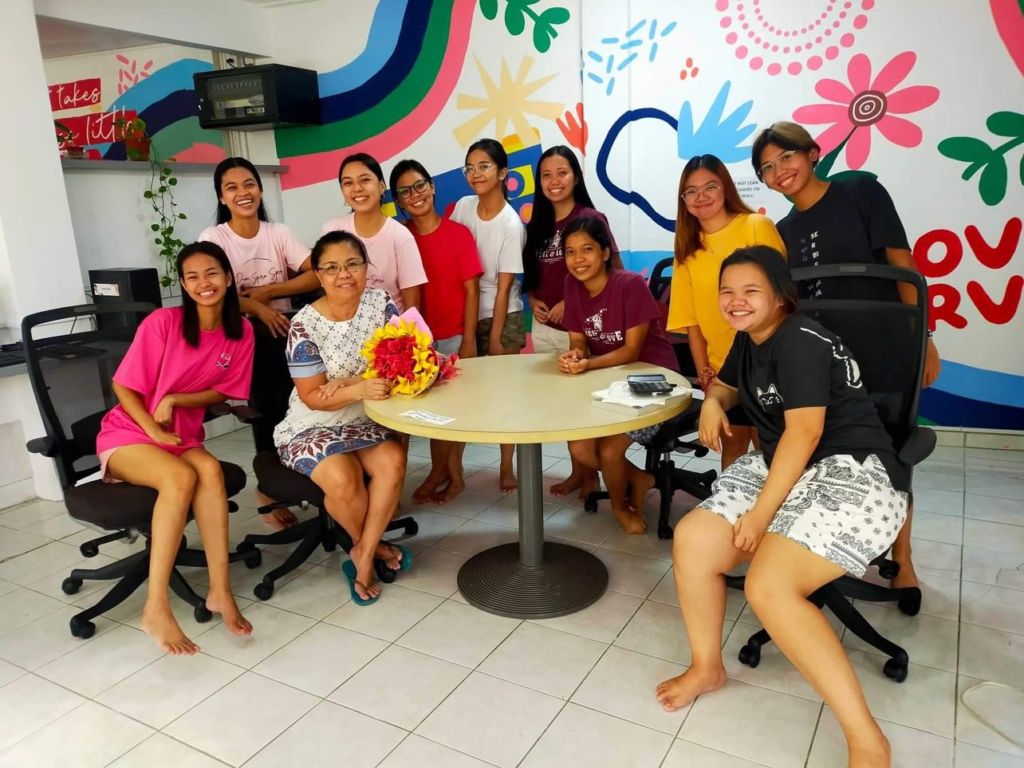
Individually, scholars have benefitted from The Learning Hub. Collectively, they have forged stronger relationships. In the past months, those who were having difficulties in the subjects they were taking tutors and friends among themselves. One time, Kevin helped Soah with some lesson in statistics. Mira said she found her “support system” in her difficult times attending online classes. She said The Hub “brought struggling people together” who formed and strengthened their bond, something the young were denied by the pandemic.
Their bond and relationship have made ADF their second home, literally speaking. Some of the scholars in college even stay over some nights in ADF, cook their meals, share their stories of successes and even frustrations, laugh together, shower, and study again in The Learning Hub.
In the weeks (months to some) of their stay in ADF, they have discovered their much-needed talent in cooking. One scholar said it was a memorable experience to her as cooking was not her area. She was guided by April one time when their meal included miswa (or wheat vermicelli, a very thin variety of salted noodles made from wheat flour). Recalling the experience, she said, “I actually put too much pepper in it, but it turned out well.”
That was the picture of The Learning Hub as a learning environment and a home. What was once an image of hope has become a realization of a community—a family—helping and nurturing each other.
Last year, when then Zone V Camera Club’s president Cha Pagdilao said that they were using the club members’ talents to contribute to change, she was right; she still is. They did play a part in changing the course of the lives of these scholars and, possibly, the lives of others as well. As promised by one scholar, The Learning Hub “will be a constant reminder to always pay it forward.”

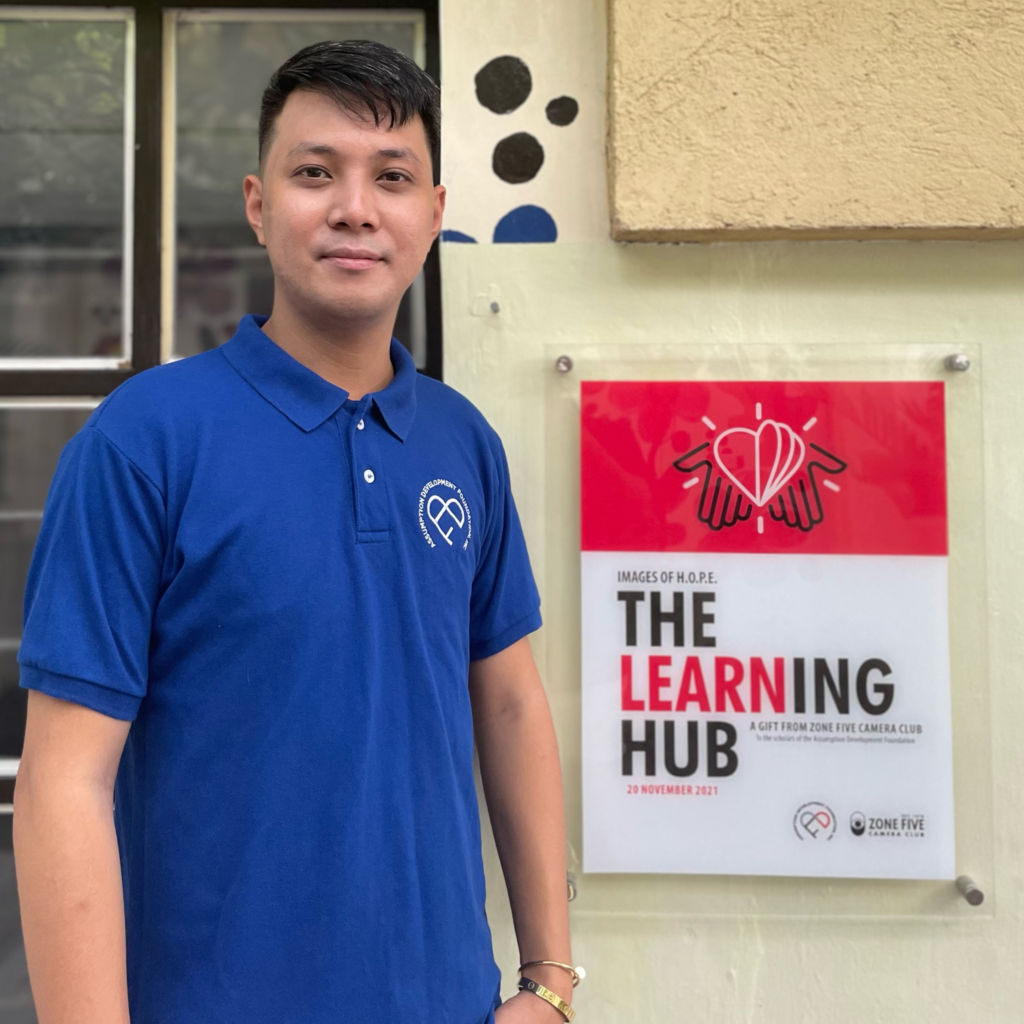
Photo above is the author, Marvin Lozano Senobio, at the Learning Hub of the Assumption Development Foundation (ADF). Marvin is an English teacher at the San Jose Del Monte National Trade School. Marvin was once a scholar at the ADF and pays it forward now by devoting his time to help the underprivileged students in the same institution.





